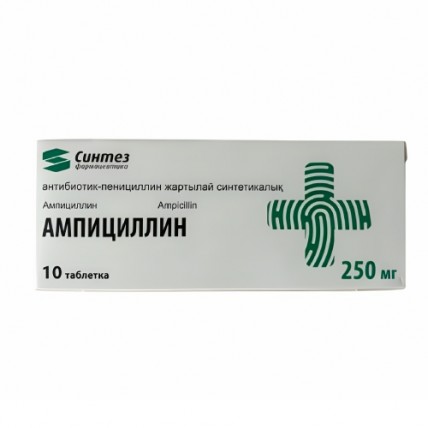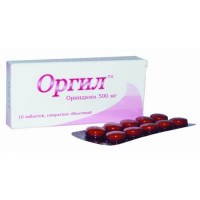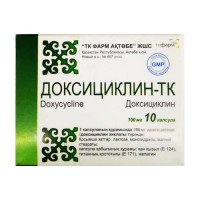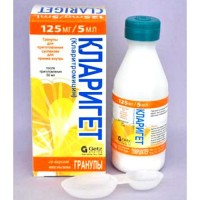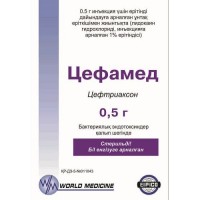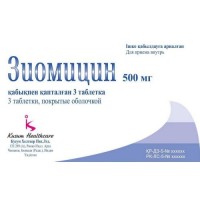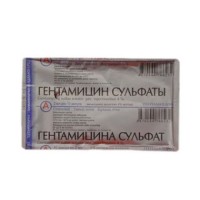What is Ampicillin?
Ampicillin is a broad-spectrum antibiotic that belongs to the penicillin group of beta-lactam antibiotics.
It is used to treat various bacterial infections by inhibiting the growth of bacteria.
It is effective against a wide range of infections, including respiratory, skin, urinary, and gastrointestinal infections.
How is Ampicillin 250 mg Used?
Ampicillin is available in tablet form, with each tablet containing 250 mg of the active ingredient.
It is typically prescribed for the treatment of infections caused by bacteria sensitive to ampicillin.
Always follow your healthcare provider's instructions on how to take this medication.
What Conditions Does Ampicillin Treat?
Ampicillin is used to treat a variety of bacterial infections, including:
- Respiratory infections such as bronchitis and pneumonia
- Urinary tract infections
- Skin and soft tissue infections
- Gonorrhea and gynecological infections
- Septicemia and peritonitis
- Endocarditis, meningitis, and typhoid fever
- Gastrointestinal infections
What Should You Know Before Taking Ampicillin?
Contraindications
Do not take Ampicillin if you have an allergy to penicillins, cephalosporins, carbapenems, or any other beta-lactam antibiotics. If you are allergic to any of the inactive ingredients in the tablet, avoid taking this medication.
Precautions
Consult your doctor before using Ampicillin if you:
- Have had an allergic reaction to antibiotics in the past
- Are currently taking other antibiotics
- Have infectious mononucleosis or a weakened immune system
- Have leukemia or kidney disease
- Suffer from gastrointestinal diseases, particularly antibiotic-associated colitis
Can Ampicillin Interact with Other Medications?
Yes, Ampicillin may interact with various medications. Inform your healthcare provider if you are taking:
- Other antibiotics like tetracycline, erythromycin, or chloramphenicol
- Medications for gout, such as allopurinol or probenecid
- Blood thinners like warfarin
- Drugs used for treating rheumatoid arthritis or cancer, such as methotrexate
- Oral contraceptives, as Ampicillin may reduce their effectiveness
Is Ampicillin Safe During Pregnancy and Breastfeeding?
Ampicillin can be used during pregnancy if the potential benefits outweigh the risks.
However, small amounts of the drug can be passed into breast milk.
If you are breastfeeding, consult your doctor before using this medication.
How Should Ampicillin Be Stored?
Ampicillin should be stored at temperatures below 25°C (77°F) and kept out of the reach of children.
Always check the expiration date before use, and do not use the medication if it has expired.
What Are the Potential Side Effects of Ampicillin?
While taking Ampicillin, you may experience some common side effects such as:
- Diarrhea
- Nausea
- Abdominal pain
Less commonly, you may experience:
- Vomiting
- Glossitis (inflammation of the tongue)
- Dizziness
- Allergic reactions such as rash, itching, or hives
If you notice severe side effects like an allergic reaction, difficulty breathing, or signs of infection, seek immediate medical attention.
How Should Ampicillin Be Taken?
Ampicillin should be taken exactly as prescribed by your healthcare provider. To ensure that the medication works effectively, it is important to follow several key guidelines:
Timing and Frequency of Doses
Ampicillin is usually taken three or four times a day, depending on the prescription. This means you need to space out the doses evenly throughout the day to maintain a constant level of the antibiotic in your bloodstream. Here's how you can manage the timing:
- If prescribed three times a day: Take the medicine every 8 hours (e.g., 8 AM, 4 PM, and midnight).
- If prescribed four times a day: Take the medicine every 6 hours (e.g., 6 AM, noon, 6 PM, and midnight).
It’s important to take your doses on time to ensure the bacteria are continuously exposed to the medication.
Before Meals
Ampicillin should be taken 30 minutes to one hour before meals. Taking the medication on an empty stomach allows for better absorption, making it more effective in treating the infection. If taken with food, the absorption of Ampicillin may be slower, reducing its effectiveness.
- Swallow the tablet whole with a full glass of water.
- Do not chew or crush the tablet, as this can affect how the drug is released and absorbed in your body.
If you miss taking it before a meal, it’s best to wait until after your next meal, then take the next dose as prescribed on an empty stomach.
Duration of Treatment
Ampicillin should be taken for the full duration prescribed by your doctor, even if you start feeling better. The usual course of treatment is typically between 7 and 10 days, but this can vary depending on the type and severity of the infection. For certain conditions, such as infections caused by streptococci, it may be necessary to take Ampicillin for at least 10 days to prevent complications like rheumatic fever.
- Do not stop taking Ampicillin early, even if your symptoms improve. Stopping too soon can allow the bacteria to continue growing and possibly lead to resistance.
Dosage Guidelines
The prescribed dosage depends on the infection and the patient’s age:
- Adults and children over 10 years: The daily dose typically ranges from 2 to 6 grams of Ampicillin, divided into multiple doses throughout the day.
- Children under 10 years: Usually prescribed half the adult dose, but the exact amount is based on the child’s weight and specific condition. Always follow the doctor’s instructions for children’s doses.
Adjustments for Kidney Conditions
If you have kidney problems, your doctor may adjust the dose or the intervals between doses. This is because reduced kidney function may slow down the removal of the drug from your body, which requires careful management to avoid overdose or side effects.
What Should You Do If You Miss a Dose?
If you miss a dose of Ampicillin, take it as soon as you remember.
If it is almost time for your next dose, skip the missed dose and continue with your regular schedule.
Do not take a double dose to make up for the missed one.
What Should You Do in Case of an Overdose?
In case of an overdose, seek medical attention immediately.
Symptoms of overdose may include nausea, vomiting, or diarrhea.
